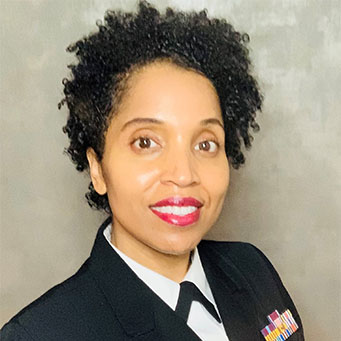During National Suicide Prevention Awareness Month in September, the Indian Health Service joins organizations across the globe to highlight suicide prevention efforts and advocate for prevention strategies and networking to share important resources and information. This week is also National Suicide Prevention Awareness Week, and today is World Suicide Prevention Day. From those who have lost a loved one to suicide, to those considering suicide, suicide affects everyone.
Studies by the Center for Disease Control and Prevention show that suicide rates are rising. Suicide is the 8th leading cause of death across all ages among American Indians and Alaska Natives. The rate of suicide for American Indian and Alaska Native adolescents and young adults ages 15-34 is also 1.3 times the national average. Nationwide, the rate of suicide has increased by more than 30 percent in half of the states across the country since 1999.
So what can we do to reduce these rates and help those in need? The IHS has partnered with the Northwest Portland Area Indian Health Board to improve access to crisis counseling for American Indians and Alaska Natives. Individuals can text the keywords “NATIVE” or “INDIGENOUS” to 741741 to connect directly to a trained, culturally-aware, crisis counselor 24 hours a day, 7 days a week. During the COVID-19 pandemic, accessing crisis services is more important than ever.
Other national efforts are currently in progress to create a new three-digit number, 9-8-8, to access crisis services. Like dialing 9-1-1 to reach emergency services, dialing 9-8-8 will connect directly with the National Suicide Prevention Lifeline . This national crisis service will be available in July 2022. Until then, if you or someone you know is struggling with an emotional or mental health crisis, please contact the National Suicide Prevention Lifeline at 1-800-273-8255 (TALK). The service is free, confidential and open 24 hours a day, 7 days a week.
Crisis services for those who identify as Lesbian, Gay, Bisexual, Transgender, Queer and/or Questioning and Two Spirit are available from the Trevor Project at 1-866-488-7386, 24 hours a day, 7 days a week. You can also text “START” to 678678.
The Trans Lifeline offers direct emotional and financial support to trans people in crisis – for the trans community, and by the trans community. A trained crisis counselor can be reached at 877-565-8860.
It is important for Native people to talk to their health care providers to learn more about suicide and available treatment. The Indian Health Service Suicide Prevention and Care Program continues to partner with tribal, federal, and other organizations to develop, support and implement services that protect individuals against suicide risk. In 2020, IHS implemented an agency-wide, evidence-based suicide prevention training called Question, Persuade and Refer, or QPR, for all federal staff. This training embeds the specific and unique cultural values to best address the suicide prevention needs of American Indian and Alaska Native communities.
Suicide prevention is everyone’s responsibility! I encourage you to learn how to talk about suicide —caring, listening and offering resources can save lives.
Related Content:



